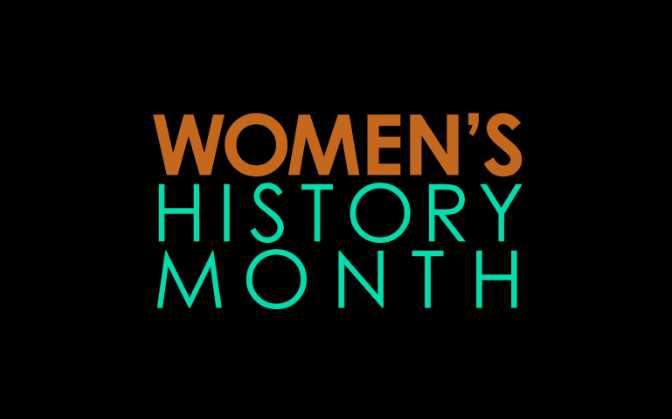MONTREAL, March 8, 2012 – Do men harbor concerns about aging in good health?
Do they confide these concerns to their physicians? Are men’s concerns the same as women’s? The answers to these questions can be found in a large cross-sectional survey of 2325 Canadian men, aged 55 to 97 years old, led by Dr. Cara Tannenbaum, Geriatrician and the Michel Saucier Endowed Chair in Geriatric Pharmacology, Health and Aging at the Institut universitaire de gériatrie de Montréal (IUGM) which is affiliated with the Université de Montréal. The results of a parallel survey querying the health concerns of older Canadian women was published in theCanadian Medical Association Journal in 2005.
Priorities: maintaining one’s independence and quality of life
Health issues of greatest concern to men included ailments that risk compromising independence and quality of life. Mobility impairments (64%), memory loss (64%) and medication side effects (63%) ranked top among their list of concerns. Vision loss (61%), hearing loss (52%) and falls (51%) followed in second place.
Are concerns being addressed by physicians?
Paradoxically, health practitioners appear not to be providing older men with adequate health information on the issues of greatest concern to them. With the exception of addressing medication side effects, men reported that only a minority of them had received counselling on strategies to prevent, screen, and treat health-related conditions that could threaten their physical and mental health. For example, respondents reported that risk factors and screening for mobility impairment and memory loss were only discussed with 13% and 9% of them respectively.
The survey reveals important information gaps for depression (only 9.5% declared that their health care provider had discussed this with them), end-of-life care (12%), osteoporosis (13.5%), Alzheimer’s disease (16%), anxiety (17%) and incontinence (18%). Additionally, because of stigma surrounding incontinence, patients are reluctant to bring up the issue on their own.
The good news is that health problems such as stroke, heart disease, diabetes, pneumonia and prostate disease appear to be well managed, since more than 80% of respondents said that they had been provided with information, screening or treatment for these conditions.
Solutions for engaging in dialogue and delivering information
Dr. Cara Tannenbaum, the geriatrician in charge of the investigation, was struck by the disparity between what older men want and what they seem to be receiving from health care professionals. “It is time for the health care system to invest in strategies for older adults to preserve their autonomy, mental health and well-being. As older men and women’s health priorities become better understood, a shift in the way health care is delivered and reimbursed will be required. More time is needed during the patient’s health care encounter to provide individualized counselling about exercise, nutrition, bladder, and brain health in old age. Incontinence post-prostatectomy is becoming more frequent and has a devastating impact on a man’s self-esteem and sexual function. Depression and anxiety, resulting from sensory impairments or the loss of loved ones, and the resultant social isolation that can ensue, are also important issues for men that need to be addressed in order to promote continued independence and quality of life”, states Dr. Cara Tannenbaum. “Increased awareness of these issues through public health campaigns or accredited information on a website for seniors will have to be developed to inform the population of age-related health challenges and how they can be appropriately managed”. Along these lines, the Quebec ministère de la Santé et des Services sociaux (MSSS), in collaboration with the Fonds de recherche du Québec, Société et culture (FRQSC), recently launched a call for research proposals aimed at better understanding men’s perceptions of their life stressors as a function of their social roles throughout the lifespan. Quebec hopes to identify the challenges for overcoming men’s stressors and to provide the necesasary resources to meet their needs.
Women worry more
Based on results from the 2005 Canadian survey on older women’s health priorities, men appear to share many of the same concerns as women for healthy aging. What stands out for every health issue is that more women worry than men. For example, 88% of older women identified mobility problems, memory loss and medication side effects as their top three health concerns, while only 64% of men admit to being concerned about these issues. Differences can be explained by women’s tendency to be more preoccupied by health issues, possibly as a result of the caregiving roles they traditionally assume for their parents, spouses and children.
Research Overview
In May 2008, a postal survey was mailed to a random sample of 5000 Canadian men aged 55 to 97 years old across Canada. The questions focused on 24 health items of concern to men, and 2325 men responded. The questions were derived from discussion groups with community-dwelling men aged 59-89 recruited from local community centers. Results were published online on Early online. This research received financial support from the Canadian Institutes of Health Research.
About the author
Cara Tannenbaum, MD, MSc, is a geriatrician and researcher in the health promotion, health care services and intervention unit at the Institut universitaire de gériatrie de Montréal (IUGM). She is also the inaugural Michel-Saucier Endowed Chair in Geriatric Pharmacology, Health and Aging from the Faculty of Pharmacy at the Université de Montréal and an Associate Professor of Medicine at the Université de Montréal. She leads a program of research in epidemiologic and clinical geriatric health. Her clinical practice aims to improve medical care for older people.
Overview of the IUGM
The IUGM consists of 452 short-and long-terms beds and an ambulatory care centre that includes one of the rare chronic pain management clinics for the elderly in the world. It is a leader in clinical practice, specialized care, health promotion and knowledge development in the field of aging and senior health in Quebec. The IUGM consists of 1300 employees, physicians, researchers and volunteers, all specialized in senior care and services. Our Research Centre is recognized as the largest in the French-speaking community. Each year, the IUGM welcomes hundreds of students, trainees and researchers studying in the field of aging and seniors’ health issues.
Source: Universite de Montreal



